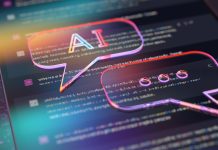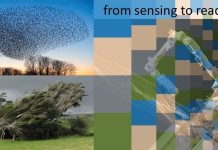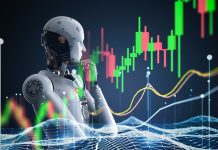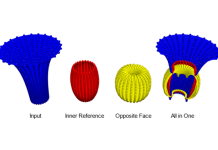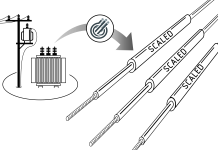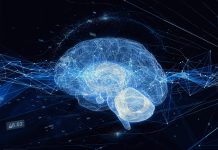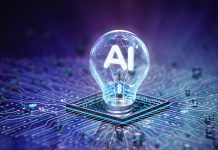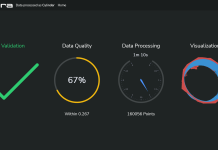Open Access Government produces compelling and informative news, publications, eBooks, and academic research articles for the public and private sector looking at health, diseases & conditions, workplace, research & innovation, digital transformation, government policy, environment, agriculture, energy, transport and more.
Home 2026
Archives
Learning with AI: Losing critical thinking at the worst time
Nancy Butler Songer argues that learning with artificial intelligence is contributing to the erosion of critical thinking skills at a time when it is most needed.
From pilots to system value: AI, leadership and collaboration in value-based healthcare
As AI and robotics transform healthcare, the challenge is shifting from developing new tools to delivering measurable value for patients and health systems. This article explores how Value-Based Healthcare (VBHC) can help turn digital innovation into scalable, system-wide impact
ChatGPT and suicide: Prevention in the age of digital technology
Konrad Michel examines the growing relevance of digital technology and AI in impacting suicide and mental health issues, along with efforts to improve AI management to better protect vulnerable people.
Materials and structures that interpret signals and react
Alberto Corigliano, a Full Professor at the Politecnico di Milano, explores the development of sentient materials and structures through the IMMENSE project.
Positioning spontaneous activity as ‘Adhesive Dots’: Lessons from AI for data integration in neuroscience
In the previous article, I argued that advancing data integration in neuroscience requires incorporating resting-state spontaneous activity into each experiment, framing it as ‘adhesive dots.’ Here, I extend that discussion by drawing strategic lessons from the success of large language models (LLMs) and by concretizing the earlier claims from the perspective of data.
Gallium oxide HV switches to turbo charge the AI data center
Prof. Singisetti at the University at Buffalo explains why gallium oxide semiconductor could be a key player in the AI transformation of society.
Organic intelligence core technology (OICT) solves the core problem of AI/ML
Many businesses are growing sceptical of AI/ML because they fail to see strong returns or solid fundamentals. Inora Organic Intelligence Core Technology (OICT) changes that – built on a strong foundation, it delivers accuracy and sustainable ROI.
EPIC-X: Excelling deep tech through place-based innovation and connected ecosystems for women-led startups
EPIC-X envisions a European effort that unites diverse stakeholders to create an inclusive and equitable deep tech ecosystem, empowering women-led startups, fostering cross-border collaboration, and dismantling systemic barriers to innovation across Europe.
Bridging big science and industry quality control for laser manufacturing processes
Discover how researchers are making the PETRA III Swedish Materials Science beamline’s X-rays accessible for tracking the evolution of material properties during laser processing.
Scaled: Substation in a cable for adaptable low-cost electrical distribution
Modern power electronics meets medium voltage cables to create a high-density inline power conversion system for the grid of tomorrow.
Philosophy of education in the age of AI
Stephanie Schneider from SUNY Old Westbury explores philosophy and practice, focusing on building future-ready education in the age of artificial intelligence.
Smaller and warmer: Merging photonics with electronics to build a quantum simulator
Mher Ghulinyan, PhD, is a Senior Researcher at the Centre for Sensors and Devices, Fondazione Bruno Kessler, where he explores the integration of photonics and electronics to develop a quantum simulator.
Powering production: Vestas aircoil A/S on the cutting edge of digital twin technology
In an exclusive Q&A interview, Vestas Aircoil A/S, a leader in heat exchanger and charge air cooler solutions, sheds light on its transformative journey with digital twin technology.
A ten-minute brain rest lets AI connect the dots across neuroscience
Dr. Masanori Shimono from Keio University highlights the importance of recording spontaneous neural activity in neuroscience and suggests that modern AI techniques can reveal meaningful patterns, offering insights into fundamental brain functions.
Security layers for neuromorphic photonic accelerators
Fabio Pavanello and co-authors discuss the importance of security layers in computer systems, particularly in the context of the Horizon Europe NEUROPULS project, which focuses on innovative security solutions based on novel neuromorphic architectures and PUF-based security layers.
What does it mean to ‘know’ something in the age of AI?
Stephanie Schneider from SUNY Old Westbury examines how Artificial Intelligence is reshaping our understanding of knowledge and challenging traditional concepts as it becomes increasingly integrated into our daily lives.
Unlocking circular economy value through trusted and decentralised data sharing
Discover how the JIDEP project evidences unlocking circular economy value through trusted and decentralised industrial data sharing.
Digital food information governance for an evolving digital world
James Peach, LLM, FMCG Regulatory Specialist at NIQ Brandbank, discusses digital food information governance in today’s evolving digital landscape.
The logical reasoning why AI/ML is a hoax and how Inora’s Organic Intelligence Core...
AI suffers from inaccurate, numerically unvalidated calculations which lead to randomly accurate and unreliable results. Accuracy is the deviation from a True Value which Inora Technologies OICT Provides.
Accelerating the development of secure and reliable photonic and electronic systems
George Papadimitriou and Dimitris Gizopoulos from the University of Athens discuss the value of simulation frameworks in optimizing the development and integration of photonic and electronic systems.



